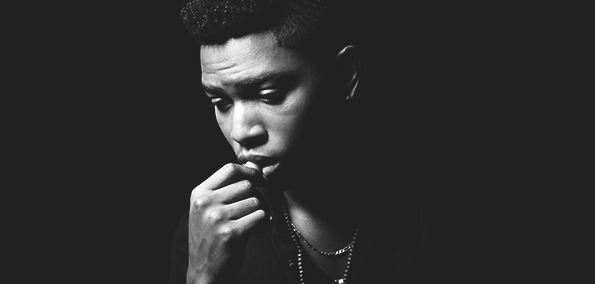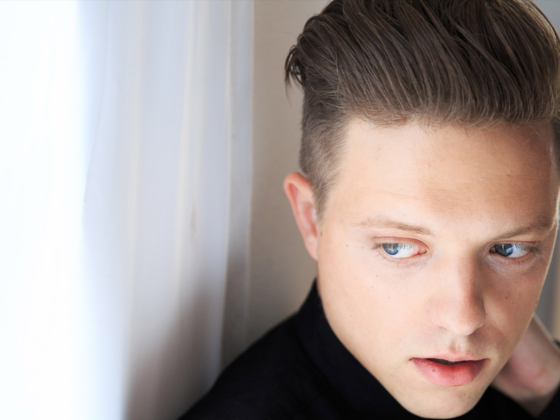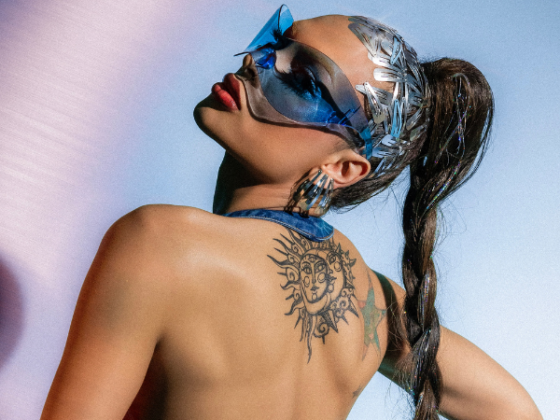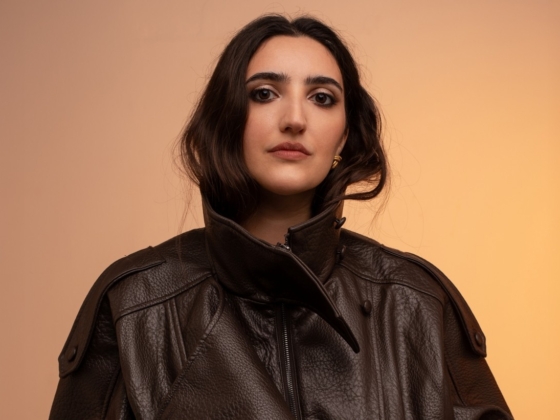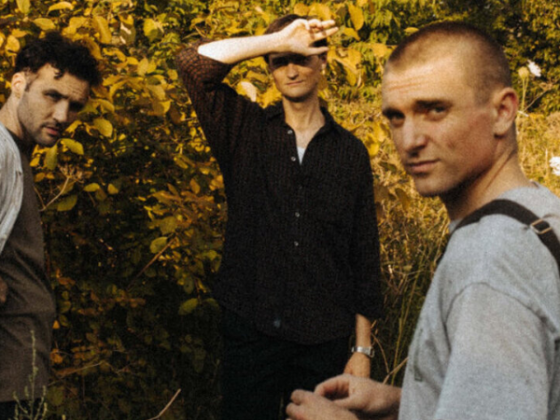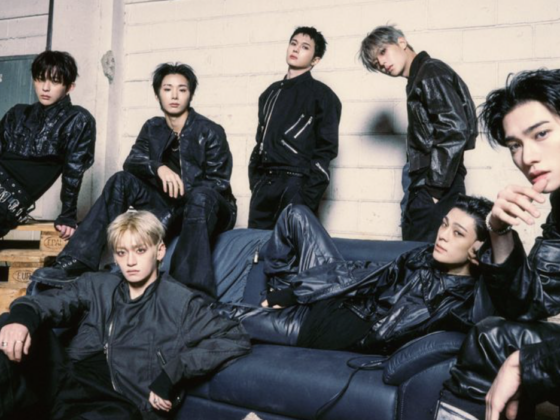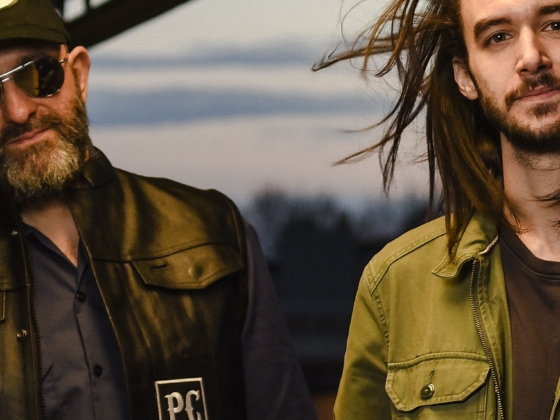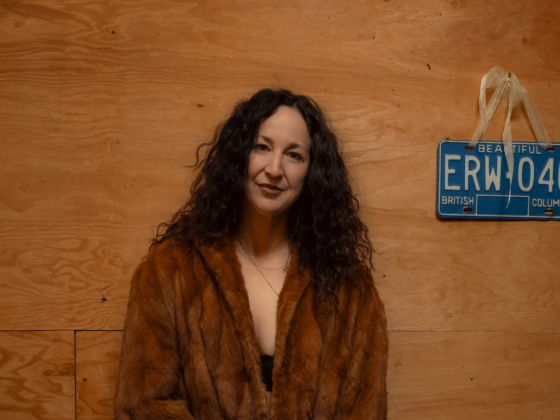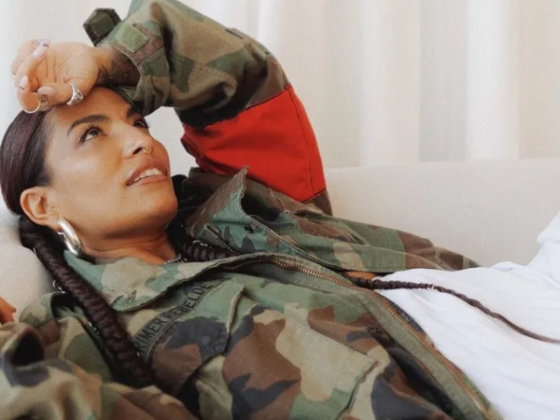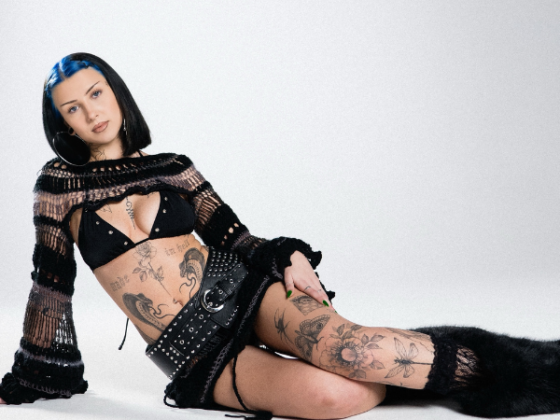In an era where the music scene is over saturated by artists, it's an uphill battle no matter where you are. Getting your name out there and being heard can be a lot of work. Chris Gallant, or just simply known as Gallant, is no stranger to that.
Gallant quietly came onto to the scene about three years ago with a cover of Ke$ha's "Die Young". It was a wondrous black sheep of a song, as it was in the midst of the "future" electronic outbreak. Not only was it a cover, but a re-imagined interpretation that showcased his silky vocal control that we hear today. It gained decent traction among media outlets and charted on Hypem, but it soon tapered off into the shadows. Many thought he would be fall into a one-and-done type of artists.
That notion was of course quickly killed when he hit us with his first original tune called "Please? (Vignette)". There, he won us over with suave R&B singing style and crisp production, thanks to his early partner in crime Felix Snow. But even at that time, only those really digging for new and fresh music would be luck enough to stumble upon him.
From there, he remained quiet for some time, but for a good reason. Gallant is a perfectionist of his own craft. He doesn't rush to crank out songs left and right. Instead, he takes his time to properly polish each song, which was made evident in his 2014 self-released EP, Zebra. This particular EP is critically acclaimed in the underground scene and is arguably the turning point of his career and the future of the R&B soundscape.
In the eve of his highly anticipated debut album Ology, EARMILK was privileged to speak with the man himself.
[soundcloud url="https://api.soundcloud.com/tracks/257628231" params="color=ff5500&auto_play=false&hide_related=false&show_comments=true&show_user=true&show_reposts=false" width="100%" height="166" iframe="true" /]
EARMILK: So tell us a little bit about yourself.
Chris Gallant: I'm from Maryland originally. I don't really like big cities, I went there for school. I eventually moved to L.A and started doing music there as a way to express myself. It kinda came about from being bored and not really knowing what to do and just gravitating towards writing songs instead of writing in a journal or diary. I never stopped, and I just kept putting out what I wanted to put out.
EM: What exactly got you into music? What are your roots?
CG: I kinda just picked up whatever they (parents) had lying around which basically started my musical palette. I gravitated towards 90s r&b at first. Then me and my friends were listening to the alternative rock vibe in middle school and somehow I blended them all together and just focused on what I wanted to say. It just what makes me feel like a better human, and it just happened to be in music.
EM: You're known for your pretty nasty falsettos. Do you naturally have this godly singing voice?
CG: (laughs) No dude, I was doing horrible. I was awful, I was the worst. When I was first writing songs, I would show them to my friends and they be like "Yo this is the worst, don't make any other songs again, please. It's really bad." But I just didn't stop, I wasn't trying to prove anyone wrong or anything. I wasn't like, trying to have a career in music either. That's just the way I express what's going on in my head. That's how I let loose all the pent up emotions I had. That's why I kept doing it, I wasn't trying to make it a profession consciously. I wasn't sure how to get better in a technical sense. I just ended up practicing for so long that I guess it ended going into what it is compared to what it was ten years ago.
EM: So it acted like an outlet for your expressions, you didn't really know any other way to express yourself?
CG: Kind of. I mean, sometimes. I got angry a few weeks ago and just made something really ignorant, it just kinda happened. Then I was pissed off at something the other day and it made me take a Photoshop break and stitch together random photos. I feel like that's just a way to let off steam, you know? And it doesn't have to be anger, it could be sadness or happiness. It manifests itself in different ways.
EM: Going way back when you first released the cover of Ke$ha's "Die Young", what was going on in your mind once you released it into the wild?
CG: Yeah that was really far back in 2012. I wasn't expecting anything. I was kinda buried in the industry in New York. I was doing writing that I didn't really want to do, kinda being forced into a box and that's when I met my friend Felix. We were both in the same state, both kinda doing stuff we didn't really want to do. We both made a decision, "Yo, this is all whack. We're going to leave." And in between leaving and being stuck in that space, we just started fucking around in Ableton, stayed in our apartments making music. That was the first thing I made that didn't really serve any traditional purpose. you know? Just opened the windows, and didn't care about noise.
EM: You've been on our radar ever since that release. When you started dropping originals, it was pretty clear that you were putting in the effort and the passion. What are you influences or inspirations?
CG: I just wanted to be really honest, you know? I wanted to say whatever made me uncomfortable to a certain extent. Like, lyrically, "Yo, I don't know if people should hear this." And I felt that I was doing the right thing in being as honest as I can be. Sonically, I was just trying to mash together as many things that I write. Which at that time it was a lot of ambient shit, How To Dress Well type stuff, Bon Iver type stuff, and I was just kinda evolving and changing over the years. I just wanted to be really authentic in what I was putting out there and represent who I was. I didn't want to be someone I'm not. I didn't want to represent a type music I didn't genuinely love at the time. I didn't act with any agenda other than what people would think and if there were was anyone out there that felt that same way that I did.
[soundcloud url="https://api.soundcloud.com/tracks/116993390" params="color=ff5500&auto_play=false&hide_related=false&show_comments=true&show_user=true&show_reposts=false" width="100%" height="166" iframe="true" /]
EM: Your EP, Zebra, in our opinion, was a major hit. Do you consider that a turning point in your career?
CG: Yeah, I never thought that I would be able to put something out with such a real representation of what I wanted to do, and then have people respond in a positive way. I did that all myself and I didn't really have anyone helping me out so it was also kinda like my chance to… I guess I don't want to say prove but I had a chip on my shoulder. I was thinking about all of this on my own and trying to do as much as I could, so I'm really proud of that. I think it represents a very specific moment in time because it acts as a representation of who I was.
EM: Ever since this EP release, you've been gathering more attention from everyone. I think one of the biggest, burning questions we have for you is how you landed with Mind of a Genius.
CG: I was in a lot of management meetings. I wasn't trying to have a manager or a label at any point of time really. I met with a lot of managers, and they were talking a lot but not really doing a lot. Some didn't call me after a couple days, it was kinda obvious they were just trying to jump on some sort of bandwagon. It wasn't even that crazy, it was just really bizarre. I was doing a lot of shows off the back of my EP and there were maybe three to ten people in a tent that might have heard a song. One night, Jake from Th3rd Brain and David Dann were at a show along with a lot of people too. I met David previously because he's been hitting me up on SoundCloud and we talked a little bit. He didn't try to kiss my ass or anything. He wasn't like "Yo, this is great!" Instead, he was like "Why did you do this? It could be this, or it could be that." I was pissed off at the dude, I was like "Whatever, fuck you." But I ended calling him in the middle of the night and was just saying "Actually, everything you said . I feel like I'm evolving. I feel like this might make me stay where I was. This my chance through changing, I want to bring other elements of my influences into my music and I don't know if you wanted to see that." We both had a great conversation, and it all just naturally worked together and I couldn't be more proud of my team.
EM: Not too long after you joined Mind of a Genius, you suddenly sported a symbol or icon. Can you give us the deets on the crudely painted sad face?
CG: I try create some sort of nostalgia factor, trying to hint at the fact that I was dealing with depression, it felt like black and white. With this I wanted to try and symbolize overcoming it in a sense, but more like an evolution, evolving. And obviously I'm always going to be the type person I am. I'm not going to be skipping down the street and shit, but perspective and experience can change. You look at the world and you can change through real relationships with other people and I was starting to realize that. I stuck with a black and white photo of me, and the gold sad face is supposed to represent an optimistic but still often times lonely view of the world. That was the whole thought process behind that.
EM: Continuing on with Mind of a Genius, you made an appearance on ZHU's Genesis Series. What was it like working with one of the most mystery shrouded artists of our time?
CG: It was crazy. I stepped in and there was like, 19 bodyguards. Nah I'm just joking (laughs).
EM: I was beginning to believe!
CG: (laughs) Mind of a Genius at that point has gotten a little bigger. It had a building, and it was really small. Me and ZHU were really the only ones there at a time. I was working on it in my studio and he was working in his studio was across the hall. So we both kinda had a relationship. And one day, he was like "Yo come through!" and then we'll be eating some Panda Express or whatever. He was like "Hey have this bass line." I was like "Oh it's tight!" It was really fast, it was really easy, and it felt natural. He's actually one of my favorite people to work with because I don't really get along with lyricists because I'm so personal when I write. But for some reason with him it kinda worked. It was effortless just being there and working with him.
EM: So is it safe to say that we may see future collaborations with him?
CG: Yeah! He is actually on my album. There'll definitely be some future collaborations with him.
EM: Since your first official single "Weight In Gold" dropped, you've been getting a lot of attention from a lot of high-profile people like Zane Lowe and Elton John. How does that make you feel?
CG: I feel very undeserving, so I'm very blown away and humbled and honored that they would even pay attention my music like that. I'm just really excited that they think the things I am making are worthy of their attention and worthy of sharing it with so many people.
EM: How did they even find you? Was it random chance?
CG: I have no idea. I think with Zane Lowe, it might have been just people sharing and him liking it. I have no idea how that worked out, it was an incredible honor.
[youtube]https://www.youtube.com/watch?v=NytChIATTAk[/youtube]
EM: More recently, you and Seal side by side cover of your song "Weight In Gold". Can you give us the dirty on that?
CG: In The Room series was an idea that some of my team members had that I was unsure about at first but I was down to try anything. I agreed to the first one (Sufjan Stevens) just to try it out. I was really shocked by the response. I wanted to come across as actually honoring these people instead of being self-serving. It was great to know for a fact that people did see me honoring these figures. The last thing I would try to do is to do something horrible to someone else's song. And when we're talking with Seal about possibly doing another one and obviously we're going to do one of his but he heard "Weight In Gold" he was like, "Yeah, let's do it." I was shocked and blown away. He even suggested doing it that day, but I obviously had to prepare and do it a later day. So we were all in the studio with my band and we were just doing it. It was completely surreal, he's so humble. I can't even articulate how important of a figure he is in my life and music development.
EM: We're all diggin' this In The Room series. First Sufjan Stevens, and then Seal. Are you allowed to say who else may be coming up next?
CG: Honestly I don't think I'm allowed, but it's completely beyond me belief. Like, I have no idea how they are able to get these people in the same room as me. I can't wait for it to come out
EM: Up until now, what is your proudest or most memorable moment?
CG: Hm. I think listening back through the album, Ology. Just knowing that I created a body of work that's really honest, and it was challenging for me. It was really special and important to me
EM: I can only imagine, this is your first full length album on an up and coming label.
CG: Yeah, exactly. Definitely an accomplishment.
Gallant has a lot of things bottled up inside of him. It's almost tangible when you queue up any song of his, as well as his covers. He is a refreshing face emerging in the peak of EDM. Hip-hop and R&B has seen some lackluster times these days (relatively speaking), where only a few handful of hip-hop and R&B artists really standout from the shadows of the infectious allure of Trap or heavy EDM bangers. Gallant provides a rekindled passion that is pretty much absent in a lot of the electronic world. He pulls from deep down inside his soul and translates it into masterpieces with the hope of finding himself in the process. Yes, everyone likes a fire track with a sick beat. But give Gallant's slow burners a try, because he's here to stay.
Stream Ology below to get to know Gallant for real this time.
Connect with Gallant: Facebook | Twitter | Instagram | SoundCloud

